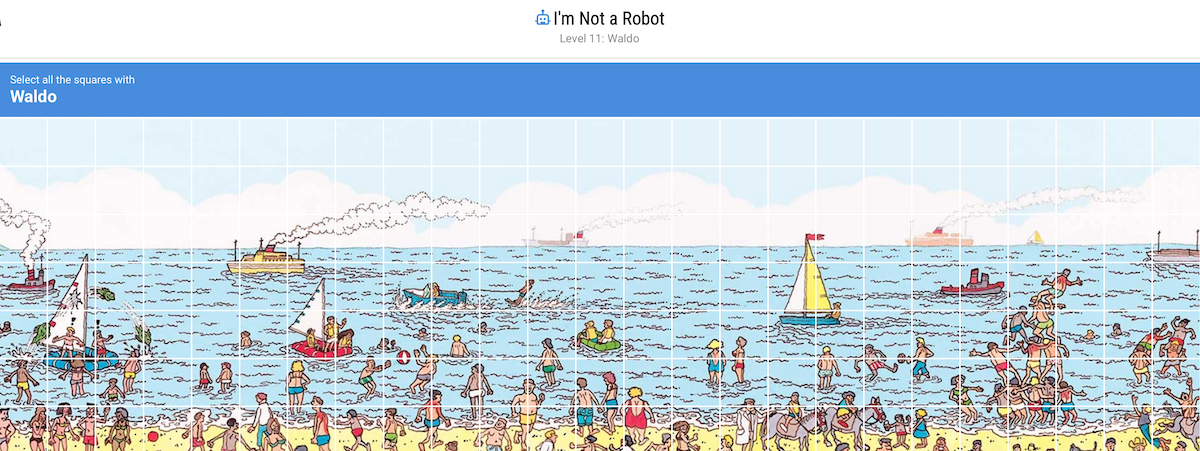Changelog News
Developer news to refine your taste
Jerod again! 👋
I would’ve sent this week’s issue to you earlier, but I got distracted trying to prove to Neal that I’m Not a Robot. I made it as far as Level 14, but it took me far too long to find Waldo. You?
Ok, let’s get into this week’s news.
🎧 Flowing with agents
Everything is changing. Adam is joined by his good friend Beyang Liu from Sourcegraph — this time, talking about Amp. Amp is one of the many, and one of Adam’s favorite agentic coding tools to use. They talk through all things agents, how Adam might have been holding Amp wrong, and they even talked through Adam’s idea called “Agent Flow”. If you’re babysitting agents, this episode is for you. 🎥 VIDEO
🥵 An escape route from YAML hell
Adolfo Ochagavía believes we’re approaching the problem of configuration from a flawed starting point:
We are failing to see that configuration files are actually user interfaces, and that they should be treated as such.
Once you start thinking of configuration files as user interfaces, it suddenly makes sense to demand an excellent user experience for working with them.
What might configuration software look like if our tools were rooted in the “configuration is UI” paradigm? Adolfo doesn’t go so far as to present an “all-encompassing theory of what configuring software could look like in a perfect world”, but he does shout out one particular project that he thinks is a big step in the right direction: KSON
😵💫 How a non-dev reads beginner tutorials
Annie Mueller hits us with a wakeup call about how she, as a non-developer, reads the tutorial you, a developer, wrote for her, a beginner. Here’s a sample:
I first started doing Very Simple Thing2 with Snarfus, but the more I used it the more I saw the potential! Despite the jaggle of the chromus, it’s really multi-purpose. And that’s what led me to argyling the pintafore with the quagmire instead of the hoobastank! I know, crazy. But it was kind of working, and actually a lot of fun… Until I hit a big roadblock: the fisterfunk will NOT talk to the shamrock portal or even send beep-boops back to the Snarfus! Of course, you know what that means3 — Now the entire hoob-tunnel is clogged with gramelions. Unacceptable.
You already get the idea, but click through for even more snarfus, beep-boops, and ding-dongs.
🤔 Taste is humanity’s last edge over AI
Brian Kihoon Lee spends some time meditating on taste, along many dimensions. If it truly is “humanity’s last edge over AI”, then we should define and understand it for all that it is. Brian says taste is: art, parsimony, and the field behind the goalposts, into which the goalposts are constantly being shifted. Taste is cultural distillation, it’s governance, and it’s able to be refined. But how? He has some ideas about that as well.
💰 Code reviews with context
Thanks to CodeRabbit for sponsoring Changelog News
The code review process has a history of being challenging for teams. It’s where the work meets integration and, ultimately, solves customer problems. The process can go back and forth nitpicking syntax, style, or patterns, but without business requirements, deployment dependencies, or organizational knowledge… it’s only half the story.
That’s why CodeRabbit shipped MCP server integration. Until now, you could only bring context from Linear, Jira, or CircleCI. Now you can pull in any MCP server — Confluence docs, Datadog metrics, Slack discussions, even your internal tools. Instead of a shallow syntax check, CodeRabbit compiles all that context into reviews that understand what your code is actually trying to accomplish.
This makes CodeRabbit the first AI code review platform that orchestrates context across your entire development ecosystem. Technical dependencies, business requirements, organizational knowledge — all in one place.
And for our friends, who need integration at the coding agent level, CodeRabbit’s CLI and VS Code integration does just that.
Teams can now enjoy code reviews that see the whole picture, not just the diff.
😵 Vibe coding is creating braindead coders
Namanyay confesses to using Claude Code to write all of this code for him. And he thinks it’s making him worse at the thing he’s loved doing for twelve years.
I can clearly see how AI coding is rewiring our brains – it makes developers crave instant gratification instead of deep understanding, and reduces us to gamblers who pull levers for the next hit of working code.
If this is happening to me, someone who learned to code in the pre-AI era, what’s it doing to junior developers who’ve never known anything else?
Good question. It’s probably too early to know, but I suspect the long-term impact of this change will be catastrophic.
Namanyay argues that when you vibe code, you get dopamine from the wrong source. He used to get two dopamine hits: one when he figured something out and a second when he got it to work. Now, the AI figures everything out and he’s left with the shallow pleasure of things working. He knows the difference, because it’s different than how he used to feel. But there’s an entire generation of developers upcoming who will have never known anything else.
🤨 Why does AI mostly make seniors stronger?
This post by Can Elma pairs nicely with the previous one:
The early narrative was that companies would need fewer seniors, and juniors together with AI could produce quality code. At least that’s what I kept seeing. But now, partly because AI hasn’t quite lived up to the hype, it looks like what companies actually need is not junior + AI, but senior + AI.
Can’s explanation for why this is playing out is that AI coding tools are good at things juniors are generally good at (like cranking out code, trying different implementations, validating things, etc.) and bad at things seniors are generally good at (like code review, system architecture, spotting security issues, etc.). The end result, in his eyes:
Instead of democratizing coding, AI right now has mostly concentrated power in the hands of experts. Expectations did not quite match reality. We will see what happens next. I am optimistic about AI’s future, but in the short run we should probably reset our expectations before they warp any further.
🎙️ Linux Fest in Texas!
Carl George joins the show to talk about Texas Linux Fest, Omarchy, Linux desktop environments, configuring Linux, and more. Use the code “CHL15” for 15% off your ticket to Texas Linux Fest. 🎥 VIDEO
🛑 How to stop functional programming
You go into work and discover that a coworker isn’t happy with some code you wrote because they don’t understand it. They go to your manager and tell them that you’re being a problem by writing code they don’t understand. Your manager, being very skilled in conflict resolution, makes a technical decision to avoid whatever tool you used which caused the problem. In your case it was functional programming.
That’s it. You’ve been told. No more functional programming.
Watch in awe as a pure, one-line function gets fixed into a multi-line function with at least one side-effect.
🪦 React won by default, killing frontend innovation
Loren Stewart:
React is no longer winning by technical merit. Today it is winning by default. That default is now slowing innovation across the frontend ecosystem.
When teams need a new frontend, the conversation rarely starts with “What are the constraints and which tool best fits them?” It often starts with “Let’s use React; everyone knows React.” That reflex creates a self-perpetuating cycle where network effects, rather than technical fit, decide architecture.
📐 Don’t forget your (un)ordered list
- The creator advantage
- You can’t screenshot this text
- Like IntelliSense, but for shells
- You want technology with warts
- The attack on the npm ecosystem
- What makes Linux system calls expensive
- “Varnish Cache” to be renamed “Vinyl Cache”
- Quickly generate an RSS feed from any website
- A tiny little JSON parsing library in ~150 lines of C99
- Help Deno raise $200k to free JavaScript from Oracle
- How Obsidian reduces the risk of supply chain attacks
- Apple has a private CSS property to add Liquid Glass effects
- How to motivate yourself to do a thing you don’t want to do
That’s the news for now, but we have some great episodes coming up! We visited our friends at Oxide Computer Company for their annual internal conference and we’re shipping you a bunch of great conversations on both Wednesday and Friday.
Have yourself a great week,
forward this to a friend who might dig it,
and I’ll talk to you again real soon. 💚
–Jerod


